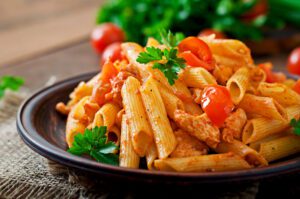
Ukrainian agricultural holding KSG Agro and pasta producer Makarony Polskie (Rzeszów, Poland) signed a letter of intent to establish cooperation in the field of trade in vegetable oil and grain, as well as cooperation in other areas of agricultural production.
Information about the conclusion of the relevant protocol was made public on the Warsaw Stock Exchange on Monday evening.
According to the announcement, the parties intend to arrange the import of rapeseed and sunflower oil from Ukraine for their processing and sale in Poland and third countries.
It is clarified that the letter of intent is not a binding agreement, but only expresses the desire to start negotiations on mutual cooperation of the parties.
According to the website of the Polish company, Makarony Polskie is one of the largest manufacturers of pasta in the country. The company has production plants in Rzeszów and Częstochowa.
Its products are offered under the brands Makarony Polskie, Sorenti and Abak.
The vertically integrated holding KSG Agro is engaged in pig breeding, as well as production, storage, processing and sales of grain and oil crops. His land bank is about 21 thousand. ha in Dnipropetrovsk and Kherson regions.
According to the agricultural holding, it is among the top 5 pork producers in Ukraine.
In 2021, KSG Agro increased net profit 16 times compared to 2020 – to $20.27 million, revenue – by 44%, to $30.75 million, while doubling EBITDA – to $12.28 million.

The German truck and bus manufacturer MAN was forced to send about 11,000 employees on unpaid leave due to the Russian military invasion of Ukraine.
The Volkswagen Group-owned company said on Wednesday that its facilities in Munich and Krakow, Poland, have been halted since March 14 due to the cessation of supplies of electrical wires produced at Ukrainian factories. At three other MAN sites, production volumes have been reduced, including at the engine plant in Nuremberg.
“Suppliers of electrical wiring for trucks cannot produce it at Ukrainian enterprises or can produce it in very limited quantities,” MAN said in a statement. “As a result, we could lose production for several weeks, which will sharply reduce output figures in the second quarter.”
The company said it has already started looking for additional sources of truck wiring harnesses in other countries.
“However, this will take several months,” said Alexander Vlaskamp, chief executive officer of MAN.
The company notes that its employees will be transferred to a reduced working hours scheme, in which MAN compensates them for 80% of lost income from both its own and state funds.
The problems of Ukrainian suppliers previously led to disruptions in the work of Volkswagen and BMW enterprises.
Most of the Ukrainian enterprises for the production of electrical wiring, located in the western part of the country, have resumed work, the Financial Times newspaper writes, citing representatives of several enterprises.
Thus, the German Leoni, which owns two factories in the west of Ukraine, has already reported that both of its enterprises have returned to work.
Other companies, including Aptiv and Kromberg & Schubert, have resumed production, FT sources say.
COMPONENTS, EUROPE, FACTORIES, MAN, MANUFACTURER, TRUCK, UKRAINE
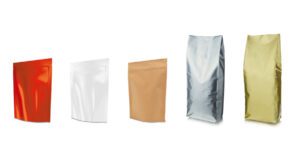
Piraeus Bank Ukraine (PBU) has provided a loan of EUR 3.1 million to the Ukrainian producer of flexible packaging Tatrafan LLC (Lutsk), and the European Bank for Reconstruction and Development (EBRD) takes half of the risk on its books under the EBRD Risk Sharing Facility (RSF), according to an EBRD press release.“The European Bank for Reconstruction and Development (EBRD) and Piraeus Bank Ukraine (PBU) are joining forces to support Tatrafan LLC, a Ukrainian producer of flexible packaging. Tatrafan will use the financing to increase its production capacity as well as to cover working-capital and capital-expenditure needs,” the EBRD said in a statement on Monday.Tatrafan is part of a broader group of companies active in the production of plastic packaging in Bulgaria, Finland and the Slovak Republic. At the facilities in Lutsk, it manufactures flexible wrapping films, which are used to produce packaging for food and for fast-moving consumer goods.According to the information on the Tatrafan website, it is a joint venture of Finnish Ab Rani Plast Oy and Slovakian Chemosvit, a.s.In 2020, OOO Tatrafan received UAH 12.35 million of net profit against a small loss a year earlier with a 48.3% reduction in revenue to UAH 324.12 million.Piraeus Bank Ukraine is a subsidiary bank of the Greek Piraeus Group. Early 2020, the EBRD organized a financing package for PBU, which included a loan in local currency of up to the equivalent of $5 million for further lending to small businesses, as well as EUR 10 million of financing under the RDP.According to the National Bank of Ukraine, as of September 1, 2021, Piraeus Bank ranked 38th in terms of total assets (UAH 4.62 billion) among 72 banks operating in the country.The EBRD is a leading institutional investor in Ukraine. To date, the Bank has invested more EUR 15.5 billion in 507 projects across the country.
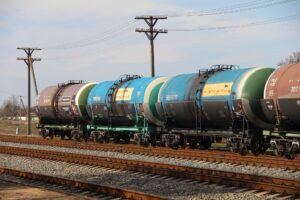
The Interdepartmental Commission on International Trade on August 5 made a decision to revise special measures that are coming to completion – quotas in relation to the import of sulfuric acid and oleum to Ukraine (foreign economic activity code 2807 00 00 00).
According to the commission’s publication in the Uriadovy Kurier government newspaper, the initiators of extension of the special measures were Skhidny (Eastern) Ore Mining and Processing Plant, PJSC Sumykhimprom, Scientific and Production Enterprise Zorya and First Chemical Association.
“The commission found that the appeal contains enough information indicating that the use of special measures had a positive effect on the applicants’ activities, but did not completely eliminate the consequences of the harm caused to them, the appeal provides enough information indicating that the applicants may be in the process of adapting to conditions of competition,” the report says.
The Ministry of Economy has been entrusted with the revision of the restrictions, and it carries out the registration of interested parties by August 13.
As reported, in the summer of 2018, the commission introduced quotas for these products for three years. For the first year, the import quota for sulfuric acid and oleum from Belarus amounted to 30,800 tonnes, Russia – 8,600 tonnes, other countries – 4,300 tonnes. In the second year, quotas were increased, respectively, to 32,300 tonnes, 9,100 tonnes and 4,500 tonnes, in the third year – to 33,900 tonnes, 9,500 tonnes and 4,800 tonnes.
The special measures do not apply to imports from about 50 countries, including Kazakhstan.
A number of Ukrainian metallurgical companies opposed the introduction of restrictions on the import of sulfuric acid, while chemical enterprises insisted on their introduction.
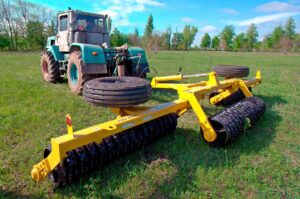
A large Ukrainian manufacturer of agricultural machinery, JSC Plant Fregat (Pervomaisk, Mykolaiv region) ended 2020 with a net loss of UAH 470,000, while in 2019 it was UAH 26.5 million.
According to the financial statements of the enterprise, published on Tuesday in the information disclosure system of the National Securities and Stock Market Commission, last year it increased its net income by 21.7%, to UAH 479.23 million.
According to the information of the plant, 53% of the total volume of manufactured products fell on for safety barriers roads and metal structures, 32% – the production of agricultural machinery for crop production, and other types of products accounted for 15%.
The enterprise exports road safety barriers to Germany, the Netherlands, China, the CIS countries; and agricultural machinery is mainly exported to the CIS countries.
Plant Fregat offers complex solutions in the field of irrigation systems, road barriers, metal structures for various purposes, as well as mechanical engineering products.
The agricultural machinery of the enterprise is included in the list of agricultural machinery, upon purchase of which 25% of its cost is compensated to the agrarians from the state budget.
This year, the plant also expects to expand the geography of deliveries of irrigation machines, in particular, an agreement has been signed for the supply of 50 machines to Uzbekistan, and deliveries are planned to Kyrgyzstan. Also, work is underway to establish cooperation with the farmers of Romania, Bulgaria and expand partnership with Poland.
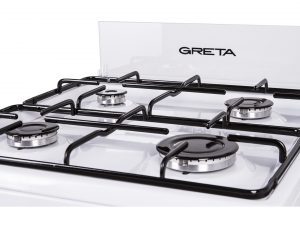
JSC Greta (previously – Druzhkivsky plant of gas equipment, Donetsk region), a leading Ukrainian manufacturer of gas, electric and combined stoves, ended 2020, according to preliminary data, with a net profit of UAH 5.46 million, while in 2019, its loss amounted to UAH 8.52 million.
According to the information on the agenda of the general meeting of shareholders on April 8, published in the disclosure system of the National Securities and Stock Market Commission of Ukraine, the retained earnings of the company as of January 1, 2021 amounted to UAH 107.34 million (as of the same date in 2020 – UAH 101.88 million).
The shareholders at the meeting plan to consider the distribution of profits and the procedure for covering losses, while the draft decision is supposed to send the net profit to the development of production, not to pay dividends.
Over the past year, the company’s current liabilities grew by 16.6%, to UAH 76.07 million, noncurrent by 15.5%, to UAH 122.58 million.
The total accounts receivable of Greta increased by 18.5%, to UAH 9.54 million, assets in general – by 11.7%, to UAH 312.48 million.
The company’s equity capital by the beginning of this year is UAH 113.84 million, including the charter capital being UAH 5.198 million.